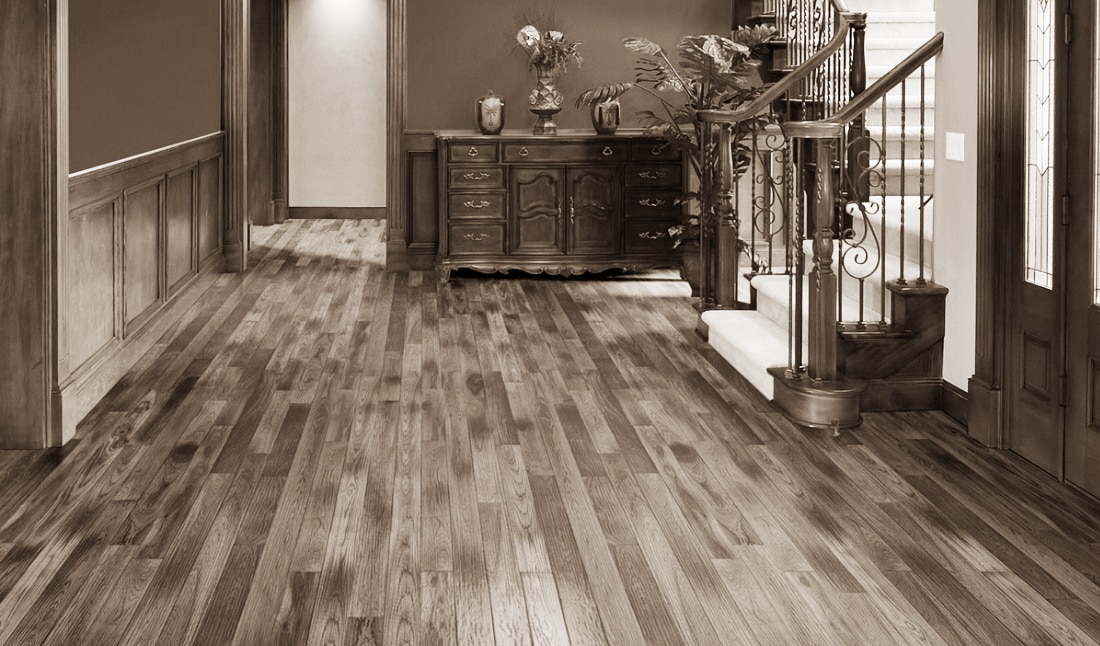
Five Types Of Flooring To Consider
The floor is the largest surface area in the home, and the best type of flooring for your space is determined by your budget, lifestyle, and personal preferences. Each type has distinct advantages, and determining which flooring is best depends on the needs and location of each room.
So, in this article, we will discuss five of the best flooring options to consider the next time you are renovating or designing your residential or commercial space.
1. Hardwood Flooring
Hardwood flooring is made from a solid piece of milled wood and is made entirely of solid wood. Maple, oak, walnut, and cherry are all popular hardwood species. Its versatility and high quality make it a popular choice for many home buyers. However, it is one of the more expensive flooring materials on the market and does require regular maintenance to keep them looking great, such as using a specialty hardwood floor cleaner once a month and applying a fresh coat of finish every three to five years.
Pros
It increases the value of your home.
It is refinishable multiple times.
There are numerous alternatives.
strong and long-lasting
Cons
In high-traffic areas, expensive can sustain scrapes, scratches, and dents.
vulnerable to moisture damage
Bathrooms, laundry rooms, and basements are all inappropriate.
2. Engineered Wood Flooring
Engineered wood flooring has the look of real wood but is less expensive than solid wood. A thin layer of hardwood is bonded over a high-quality plywood substrate to create the floor. It is as strong as solid hardwood flooring and can last as long if properly cared for.
Pros
DIY-friendly
Has a genuine hardwood top layer
Greater moisture and water resistance than real wood
Less prone to warping
Various installation methods[b]
Cons
Refinishing is not permitted more than once.
It is not fade-resistant.
Quality varies greatly.
Underfoot, it may sound hollow.
VOCs are emitted.
3. Laminate Flooring
Laminate flooring is an affordable option for homeowners who prefer an alternative to carpet but do not want to pay the high prices of hardwood or tiles. The floors are made of a particle board wood base with a wood or tile photo on top, all protected by a clear plastic layer. This flooring is very easy to install, and it comes in a variety of textures and colors.
Pros
Cheaper than wood
Simple to clean
Scratch-resistant
DIY-friendly
Many different styles and colors are available.
Cons
Moisture damage is possible.
Chips are easily broken.
It does not have the appearance or feel of wood.
There is a hollow sound underfoot.
4. Vinyl Flooring
Vinyl flooring is extremely water-resistant and will not be damaged if water is left on the surface for an extended period of time. It is made of plastic and is available in plank, tile, and sheet form.
Luxury vinyl plank (LVP) and luxury vinyl tile (LVT) are two types that have recently gained popularity due to their durability and wide range of styles.
Pros
Ideal for use in kitchens, bathrooms, laundry rooms, and basements.
Durable
Water and fading resistance
DIY-friendly
There are numerous design options available.
It is simple to maintain
Cons
LVP and LVT are more costly than laminate.
Wood has a lower ROI.
5. Tiles
Tile flooring is a popular choice for wet areas such as bathrooms and kitchens. Ceramic and porcelain are the most common tile materials. Tile is water-resistant, long-lasting, and available in a variety of styles and colors.
The cost of installation varies according to the material; for example, glazed ceramic is less expensive than porcelain tile.
Pros
Waterproof
Durable
Long-lasting
Cons
Expensive
Installation is difficult.
A significant amount of preparation work is required before installation.
Choosing the best flooring for your home isn’t as simple as picking the one that looks the best or is on sale. Moisture, durability, ease of maintenance, and budget are all important considerations. Because a new floor is an investment, your floor selection should balance your needs with your style. Make sure to thoroughly discuss your ideas with your chosen flooring contractor to ensure the project is completed to your specifications.
